Africa
Latest

Quika promises free satellite internet for developing countries
Facebook's plans for free satellite internet access may have run into some... setbacks, but another company is promising to make that ubiquitous data a practical reality. Quika, a company led by the chief of satellite provider Talia, is launching a free satellite broadband service in the second quarter of 2018. It's promising speedy, low-latency Ka-band data in developing countries where income inequality and a lack of infrastructure (especially in rural areas) make conventional internet access impractical for most. Service will begin with Afghanistan, Iraq and most of Africa, but there are promises of more countries afterward.
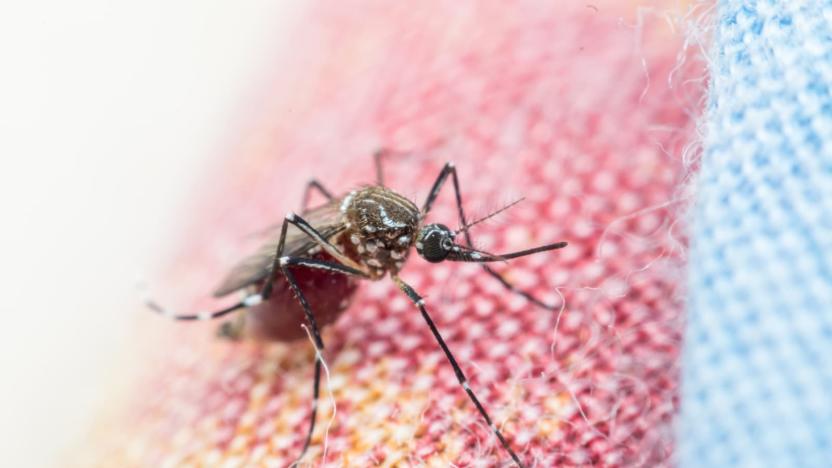
Drones and smartphones help fight malaria in Tanzania
The fight against malaria has been improving, but there's still lots more work to do. For one thing, anti-larval sprays are both expensive and time-consuming -- you can't always afford to spray an entire area. Thankfully, a mix of technology is making that mosquito battle more practical. Wales' Aberystwyth University and Tanzania's Zanzibar Malaria Elimination Programme have partnered on an initiative that uses drones to survey malaria hot zones and identify the water-laden areas where malaria-carrying mosquitoes are likely to breed.

Electric car prototype is built for Africa's rural roads
With a few exceptions, most electric cars are delicate, expensive creatures designed for paved streets and well-heeled early adopters. And that makes them ill-suited to rural Africa -- many roads away from the cities aren't paved at all, and just about any EV would be out of reach. That's where the Technical University of Munich comes into play. It recently revealed a prototype electric vehicle, the aCar, that's designed for both the conditions and uses of rural Africa.
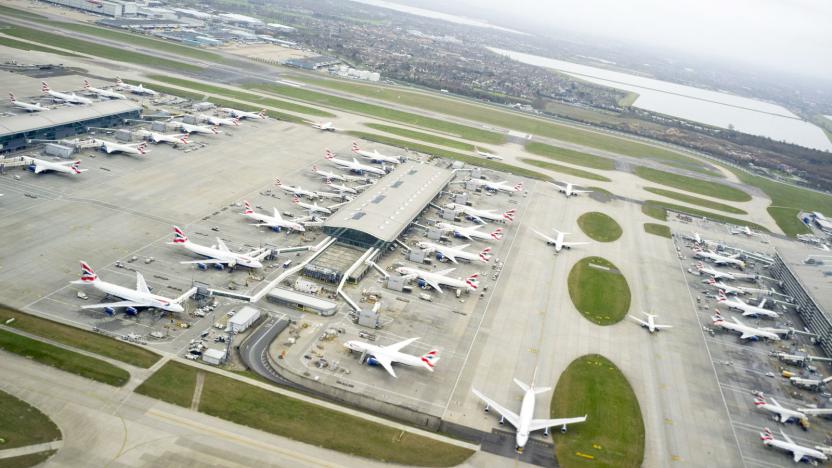
UK also bans devices from cabins on flights from Middle East
The UK has followed the US in restricting electronic devices on flights from several countries in the Middle East and North Africa. Though not identical to the measures implemented by the US, passengers on "select flights" coming to the UK from Turkey, Lebanon, Egypt, Saudi Arabia, Jordan and Tunisia will only be allowed to carry smartphones in the cabin. Any device bigger than 16.0 x 9.3 x 1.5cm, such as laptops, must be stored in checked, hold baggage.

US bans most electronics on Middle Eastern airlines (updated)
The US just made traveling to certain parts of the world considerably more complicated, at least for technology fans. Middle Eastern and African airlines (including Royal Jordanian and Saudia) say the US has asked them to institute a 96-hour ban on carrying most electronics on flights to or from the US, starting on March 21st. You can sit down with your phone or any necessary medical devices, but cameras, laptops and other larger gadgets will have to go into your checked baggage. The exact conditions of the ban aren't yet clear, but an American official said that "12+" airlines are covered, while Saudia exec Abdulrahman al Fahad mentioned 13 countries being affected.
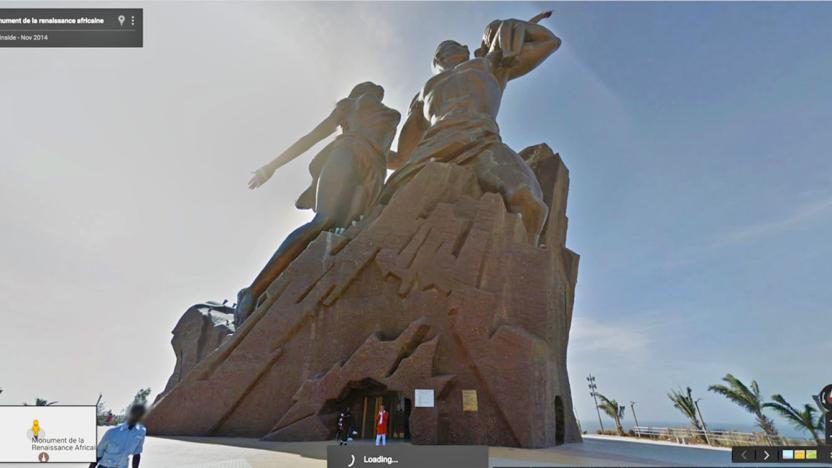
Google adds iconic African landmarks to Street View
It's not all jungles, mud houses and wild animals in Africa: the continent has cities, art centers, monuments and other landmarks, just like everywhere else in the world. To bust myths going around about African countries and to give more people a chance to get to know what they truly look like, Google has tweaked Street View to add iconic landmarks and monuments in Ghana, Senegal and Uganda.
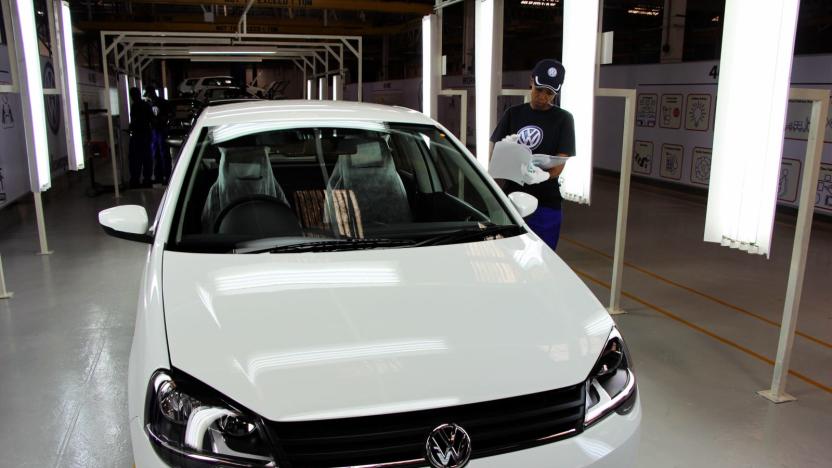
Volkswagen is starting a ride-hailing service in Rwanda
Volkswagen is trying to put its PR woes behind it. And to do so, it's looking to invest in Africa, the cradle of civilization, with a ride-hailing service and a production facility. The automaker will set up the former in Rwanda, with Reuters reporting the latter will be in Kenya.

Ebola vaccine proves 100 percent effective in Guinea trial
An Ebola vaccine has proven to be 100 percent effective during test trials in Guinea. The shot has yet to be approved by a regulator, but Gavi, the Vaccine Alliance, has already committed $5 million so a stockpile of 300,000 doses can be produced. The results of the trial, which covered 11,841 citizens, were published in The Lancet medical journal this week. Of the 5,837 people who received the vaccine, none came down with Ebola after 10 days. (Those who showed symptoms before this time were not counted, as it was assumed they had been infected before vaccination.)

Building my perfect dictatorship in 'Democracy 3: Africa'
Positech's Democracy game series has always offered a grotesque caricature of politics. I've put tens of hours into Democracy 3 (D3) in recent years, and the lesson I've learned is that what starts as a nuanced game about balancing policies to keep a society happy more often than not devolves into a hilariously entertaining social-engineering simulator. This week, the one-man British developer released a standalone expansion to the game titled Democracy 3: Africa (D3:A), and the changes it brings add a whole new dimension to the series.

Drones deliver sterile insects to tackle disease in Ethiopia
To combat disease-ridden tsetse flies in Africa, the International Atomic Energy Agency (IAEA) is enlisting heavy-duty drones. An autonomous system has been developed by Embention, which can fly for up two hours at a cruise speed of 20 meters per second. Under each wing is a stack of temperature controlled pods, each containing a swarm of sterile male insects. These little creatures have been pummelled with gamma radiation, courtesy of the IAEA, while they were bred in captivity. Once they're in the wild, they mate ferociously with the native population, producing no offspring and consequentially lowering the tsetse fly population.

Morocco is building the biggest solar farm in all of Africa
Morocco's 160 MW concentrated solar farm, Noor 1, was only the start. When the African nation is done, Noor 1 will be joined by three more similarly-sized power plants which will generate a whopping 500 MW of renewable energy. That's enough to power 1 million homes, or about half of the country's residences.
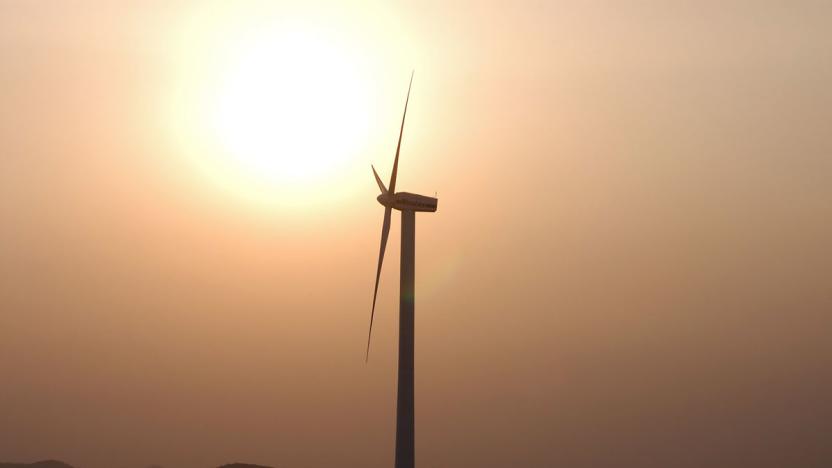
Google invests in Africa's largest wind power farm
Google's big bet on clean energy isn't just limited to the US or Europe -- far from it. The search firm just promised to invest in Africa's largest wind farm, the Lake Turkana Wind Power Project in Kenya, by buying turbine maker Vestas' 12.5 percent stake when the farm is complete. Lake Turkana should generate 310MW of energy when all is said and done, or as much as 15 percent of Kenya's current output. That could not only help the country transition to green energy sources, but give it the kind of reliable electricity that's tough to find in the region.

Microsoft will deliver low-cost broadband to 500,000 rural Indian villages
A major partnership with Google putting free Wi-Fi in 400 train stations wasn't the only major network news coming from India today. The Indian government also announced on Monday that it will pair with Microsoft to bring low-cost broadband connectivity to half a million villages throughout the subcontinent. That should help at least some of the estimated 4 million people that go without internet connectivity every year
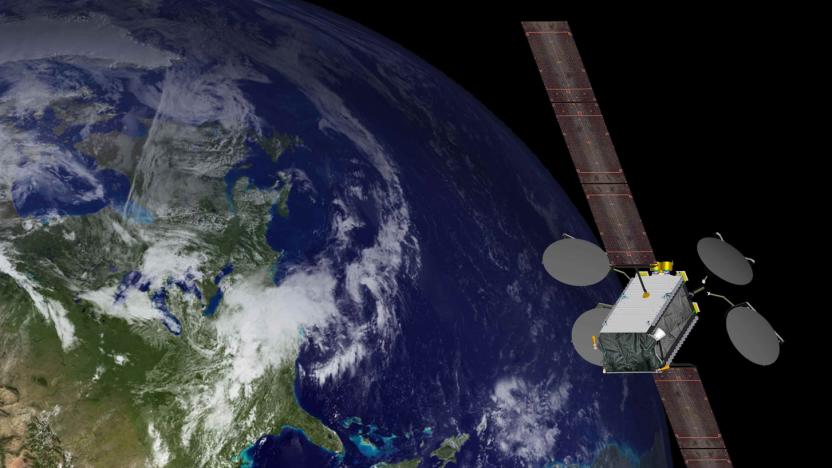
World's first all-electric propulsion satellite begins operations
Boeing has announced that the first satellite using fully-electric propulsion has begun operating. Dubbed the ABS-3A, this 4,300-pound telecommunications satellite will provide C- and Ku-band service to South America, the Middle East and Africa. Unlike, well most every other satellite in orbit, the ABS-3A doesn't rely on tanks of inert gas for propulsion and orbit maintenance. Instead it relies on the Xenon Ion Propulsion System (XIPS) which employs a magnetic field to push ions around and generate thrust. The satellite is expected to use just 11 pounds of Xenon annually over the course of its 15 year operational life span -- that's a tenth the amount of propellent that a conventional satellite would require.
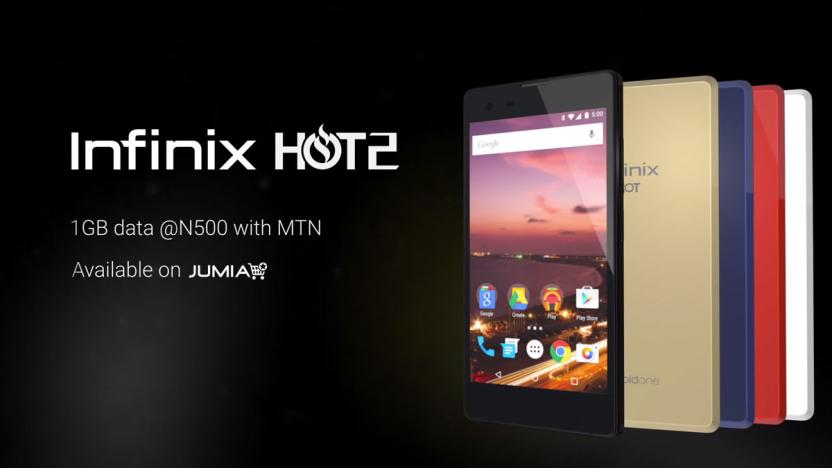
Google brings Android One devices to Africa
Google's program to bring cheap Android devices to developing lands has arrived in Africa with the launch of Infinix's HOT 2. The device is available today in six different countries, including Ghana, Ivory Coast and Kenya, setting locals back just just under $90. You certainly get some bang for your buck, with the HOT 2 coming with a quad-core MediaTek CPU, 1GB RAM and 16GB storage. In addition, you'll find a microSD and dualSIM card slots running down one side of the phone. Photography-wise, there's an 8-megapixel primary camera paired with a 2-megapixel forward facer, and the whole thing is topped off with a 5-inch HD screen and a 2,200mAh battery.

Mozilla launches Firefox OS phones in Morocco and Senegal
Firefox OS might be in a distant fourth place (or further?) here domestically, but Mozilla sees plenty of value for it in emerging countries. Specifically? Senegal and Madagascar in Africa, where it recently partnered with French telecom Orange to launch the KLIF. And no, you aren't wrong, it's neither a flip-phone or a slider. Nor is it transparent. A Mozilla blog post says that the main idea with this 3G smartphone is to get more people online in places where they previously couldn't. It's the web outfit following through on a promise it made back at Mobile World Congress in Spain, and the Middle East is where we'll see the initiative pop up next.

Mobile wallets more popular in Sub-Saharan Africa than anywhere else
In Sub-Saharan Africa, mobile wallets are a huge deal. While it's been that way for years, the World Bank's latest Global Financial Inclusion database gives us solid details on just how prevalent they are in the region. According to the report, 12 percent of adults (64 million) in the area have mobile wallets or what Africans call "mobile money accounts," which aren't connected to banks. Half of those people have traditional bank accounts, but the half rely solely on their phones for their financial needs. It seems to be especially popular in Kenya, where 58 percent of adults access their money through a mobile device.

The Big Picture: The Congo's solar-powered traffic robocops
While Detroit waits for its Robocop statue, the Democratic Republic of Congo's one-upped The Motor City and installed a quintet of robots to keep an unblinking eye on any traffic-law violators. The Guardian reports that these solar-powered aluminum bipeds are armed with cameras to monitor the vehicle-piloting populace, and hand-mounted red and green lights to help regulate the bustling flow of city Kinshasa's some nine million residents. Each new, female-engineered unit runs $27,500 (cheaper than some SWAT 'bots), and the country hopes to add another 30 to the force in an expansion effort for monitoring its highways.

Omate's smartwatch is the first to be assembled in Africa
When Omate announced its $99 Racer last month, little did we know that this rugged, near-circular smartwatch will be heading to Africa -- Congo, Ivory Coast and Cameroon to begin with -- this coming June. According to today's announcement, this is all thanks to Congolese mobile startup VMK, who is already leading efforts to boost local smartphone penetration with affordable devices. Better yet, VMK will also be assembling the Africa edition Racer (plus future mobile devices) at its upcoming factory in the Republic of Congo, so unless someone else beats VMK to the race, this will be the first smartwatch to be assembled in Africa. Omate CEO Laurent Le Pen expects to sell 50,000 units in that continent alone this year, followed by plans to manufacture the whole device locally next year.

Microsoft's white space internet aims to improve education in Ghana
Microsoft has long been championing TV white space internet for use in places conventional types of connections don't reach, even in places that don't even have access to electricity. After a pilot program that brought white space broadband to some African universities, Redmond is now making it available to anyone in Ghana. The company has collaborated with local provider Spectra Wireless to launch what it claims is the "first commercial service network utilizing TV white spaces" in Africa. Now, people (specifically students) in Ghana can subscribe to affordable high-speed internet bundles and even internet-enabled devices, presumably phones, tablets and laptops.








